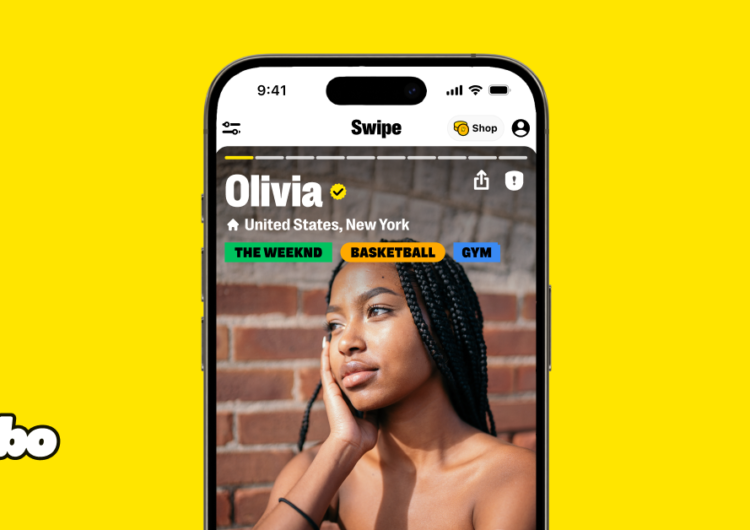
“We believe deeply and passionately that users want social media to be social again.”
By Exec Edge Editorial Staff
In the ever-growing and evolving landscape of social networking, where platforms rise and fall with the changing preferences of users, Yubo is doubling down on social discovery to keep growing its online community of Gen Z users around the world.
Since launching in 2015, over 80 million people in more than 100 countries have joined Yubo to ‘hang out online’ with friends via livestreaming, messaging, and gaming. Engagement on the app, co-founded by Sacha Lazimi, Jérémie Aouate, and Arthur Patora, skyrocketed by 500% during the pandemic, giving its team the confidence to continue sharpening Yubo’s social discovery model.
“Social media has changed so much since its early days, and you’re more likely to find a new shirt than a new friend when you log onto social platforms today,” said Lazimi, who leads Yubo as its CEO. “The next wave of online networking will reflect a growing demand for fulfilling human connections on a one-to-one basis or within small groups. At Yubo, we consider ourselves pioneers in this next era, and social discovery is the foundation of this emerging phase.”
Founded in 2015 by Sacha Lazimi, Jérémie Aouate, and Arthur Patora, Yubo aims to provide a safe and engaging space for teenagers to meet new friends and interact online. Unlike traditional social networks that focus on connecting users with existing friends or influencers with large followings, Yubo emphasizes discovering new friendships and hanging out online whenever, wherever.
This model relies on real-time connections by putting users in touch only with others who are also online and active on Yubo at the same time, as well as asking users to share basic information about their interests to help break the ice and give these novel connections a natural jumping-off point. Yubo also removes the pressure for users to try to build popularity through performance metrics like follower counts or likes, thereby motivating authentic engagements based on genuine connections, rather than clout.
This approach has resonated strongly with Gen Z, a demographic that values authenticity and real-time interactions, Lazimi said. But the core idea of Yubo’s social discovery model is evergreen and can appeal for any age group.
“We like to use the example of music festivals when we talk about social discovery. The chances you’ll have something in common with someone you meet at a music festival are pretty high, and while liking live music doesn’t guarantee you’ll become best friends, that shared interest is likely to lead to a fun interaction and chat, however brief,” Lazimi said. ”Our social discovery model aims to create those same kinds of moments. You can log on to Yubo at any time from anywhere in the world and meet someone new.”
Given the shift towards more passive consumption on mainstream social media platforms, Yubo ensures that users remain actively engaged and connected with others in real time through its social discovery model.
Users on Yubo connect by livestreaming and direct messaging, which together create a dynamic and interactive environment. Users can join live streams, participate in discussions, and even co-host streams with friends. This fosters a sense of community and belonging, which is often missing in more established social networks.
There are zero ‘watchers’ in 95% of livestreaming rooms on Yubo at any given time, Lazimi said. With the average Yubo livestreaming room being made up of four or five people, this means that almost all livestreaming on the app consists of group engagement, compared to livestreaming on other platforms, which often consist of one person broadcasting themselves to an audience.
Yubo’s emphasis on safety and moderation is another cornerstone of its strategy. The platform employs a combination of artificial intelligence and human moderators to ensure a safe environment for its users. This includes features like real-time intervention during livestreams and stringent age-verification processes. Yubo has also partnered with several nonprofits and NGOs to promote digital well-being and online safety.
The platform’s dedication to safety is reflected in its design choices. Users are given intuitive tools to report suspicious behavior, using screenshots or video imaging as well as text to describe the issue at hand, giving moderators substantial context to review flagged content or accounts and respond accordingly.
“Safety is our top priority,” Lazimi said. “We want our users to feel like they are part of an inclusive environment where community guidelines are enforced and they can just focus on hanging out.”
Yubo’s target audience has evolved to focus on teenagers and young adults, aged 18 to 25, as Gen Z has grown up since Yubo was founded almost a decade ago.
“The eldest of the generation are now in their early and mid-20s. We are growing up with them and evolving to meet their changing needs,” Lazimi said.
An example of this evolution is allowing users to specify their occupation or field of study, responding to user feedback to keep Yubo a relevant and engaging platform for its growing user base.
Investors have taken note of Yubo’s sustained growth and innovative model. The platform has raised significant funding to date, including a $47.5 million Series C round in 2020. This funding has allowed Yubo to expand its team, enhance its technology, and grow its user base. As of now, Yubo boasts over 80 million users across more than 100 countries, with a significant presence in the United States, Europe, and Australia.
“We have relied heavily on AI to scale our multi-layer content moderation framework and ensure that our community guidelines are followed and enforced across dozens of languages,” Lazimi said. This includes employing trained, native-speaking human moderators who understand cultural norms and regional slang to ensure a safe and respectful environment.
The monetization strategy of Yubo is another aspect that sets it apart from other major social networks. Yubo generates revenue through paid features, where users can purchase in-app features and enhancements.
Looking ahead, Lazimi sees the next wave of online networking reflecting a growing demand for fulfilling human connections on a one-to-one basis or within small groups.
Yubo’s growth trajectory and user-centric approach have positioned it as a formidable player in the social networking space. As the platform continues to evolve, it aims to introduce new features and expand its reach even further.
For social media industry operators, Yubo’s success offers valuable insights into the future of social networking. The platform’s focus on real-time interaction, safety, and user experience demonstrates a shift away from traditional models. It highlights the importance of understanding and catering to the unique needs and preferences of younger generations.
For startup investors, Yubo represents a compelling opportunity. The platform’s innovative approach, robust growth, and solid monetization strategy make it an attractive prospect in a competitive market. As social networking continues to evolve, platforms like Yubo that prioritize genuine connections and user safety are likely to thrive.
Yubo is more than just a social app – it is a reflection of what the next generation values in their online interactions, Lazimi says.
By prioritizing real-time connections, safety, and user experience, Yubo is not only capturing the attention and engagement of Gen Z but aiming to set a new standard for the industry.
“We are building the social network of the future, one that is safe, authentic, and truly social,” Lazimi said.
Contact:
Exec Edge
Editor@executives-edge.com







